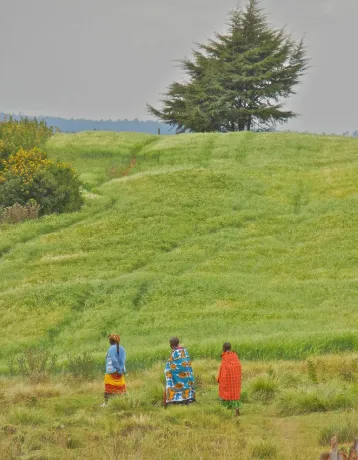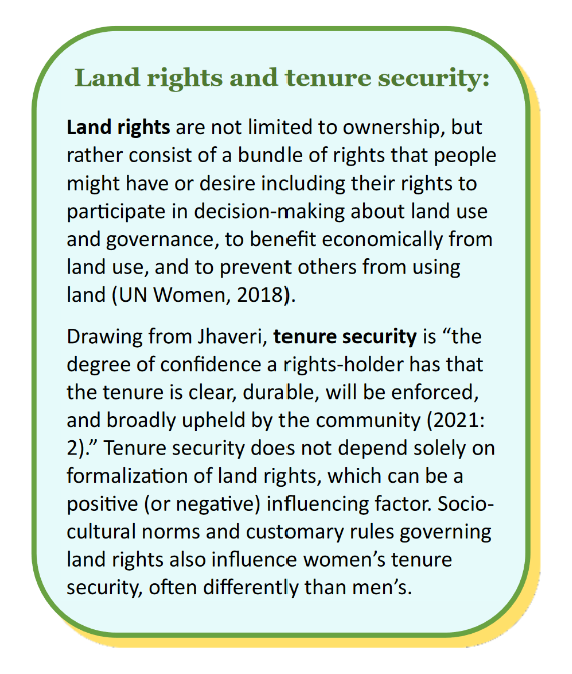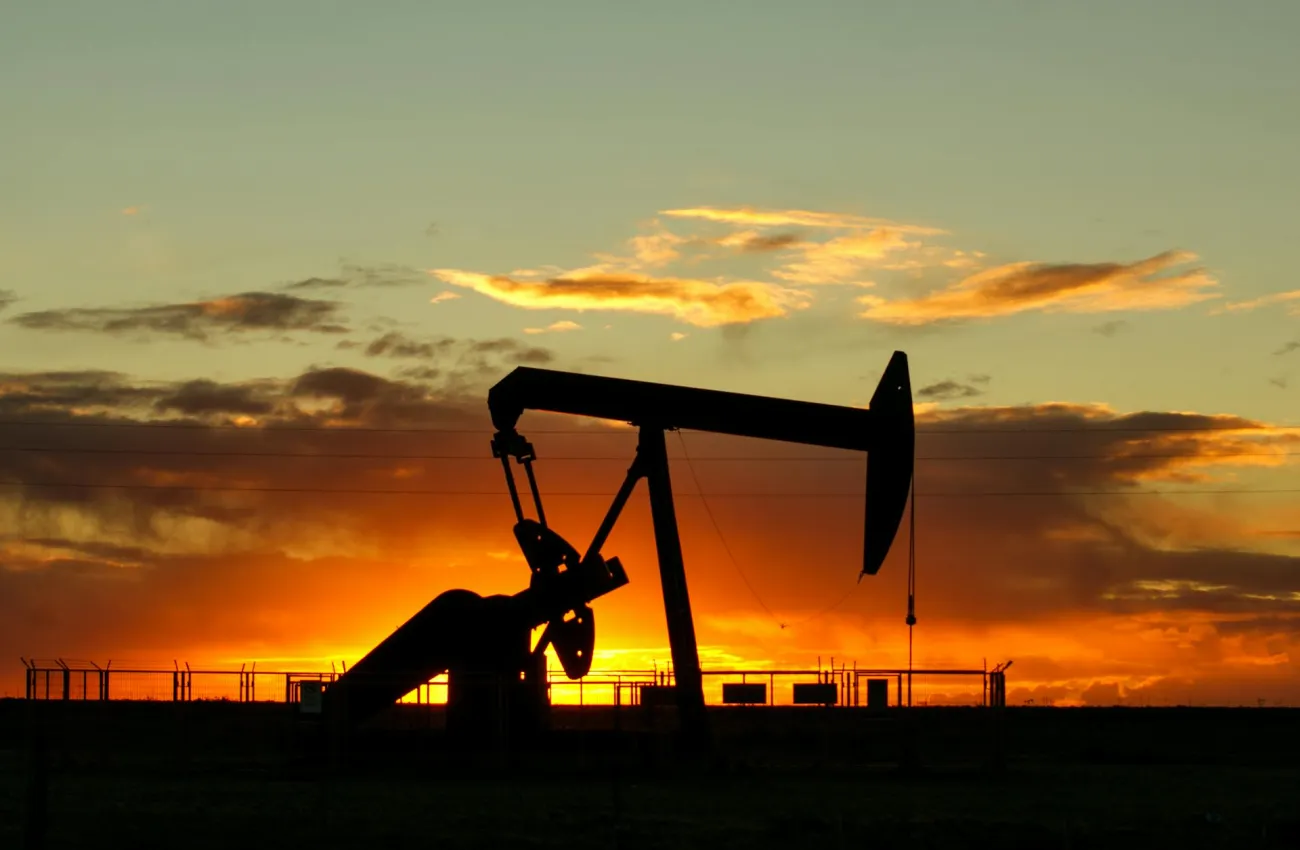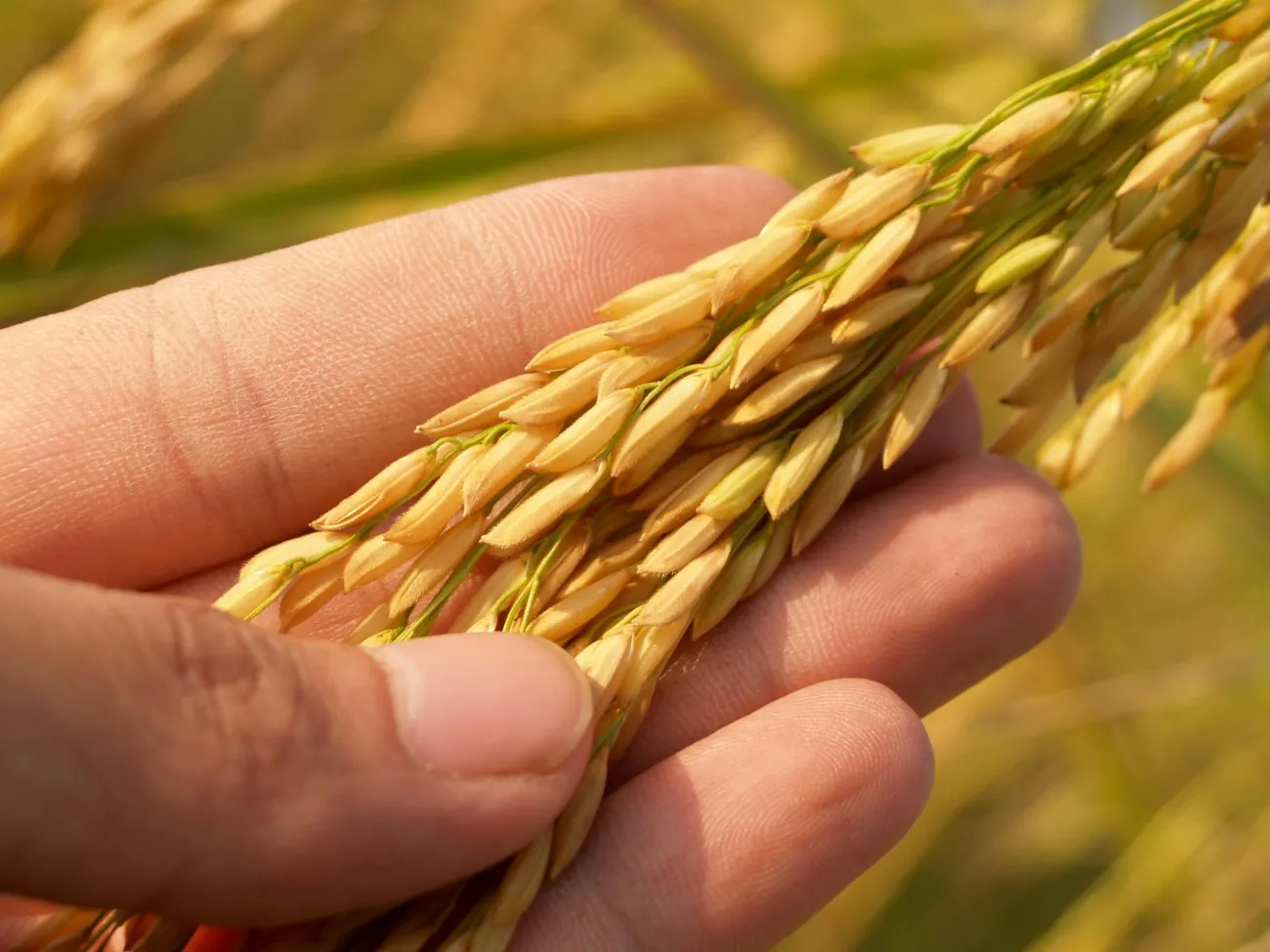A brief by US NGO Landsea details the importance of women’s land tenure security (WLTS) in relational to climate change action.

Summary
A recent brief by US NGO Landsea details the potential of women’s land tenure security (WLTS) to support and accelerate climate action. Through a review of recent literature, it assesses current existing barriers and biases in formal and informal tenure systems which worsen gender gaps and prevent women’s ability to benefit from land use-based adaptation and mitigation actions.
The brief reviewed evidence-based research centred in rural areas of the Global South and developed a conceptual framework to synthesise the research under three pathways listed below, where improving WLTS could simultaneously improve climate outcomes:
- Long-term land investments
- Increased range of response options other than land investments e.g., shifting socio-cultural norms and facilitating access to other assets and services consequential for women
- Sustainable management of forest resources
The brief highlights major evidence and data gaps related to both understanding and communicating how WLTS links to climate action. It emphasises a call to action to researchers, governments, and funders to collaborate around the following topics:
- How factors that affect WLTS are linked to achieving mitigation and adaptation.
- Following impact along multiple connections within each of the report’s four proposed pathways between WLTS and mitigation, adaptation, and resilience
- Focus on under-researched areas including Latin America and Southeast Asia.

Image 1: Infographic of definitions of land rights and tenure security.
The brief concludes with a call to action emphasising how WLTS can serve as a key lever for climate change adaptation and mitigation through better long-term land investments, increasing the diversity of response options, and delivering more sustainable forest resource management. The brief calls on governments, CSOs, and private sector actors as critical players in developing gendered land tenure data to move the research on how WLTS links to climate change further.
Reference
Landsea, 2023. Links between Women’s Land Tenure Security and Climate Action: An Evidence Brief. Landsea
Read the full brief here. See further reading on Land Tenure Reform in Sub-Saharan Africa.




Comments (0)